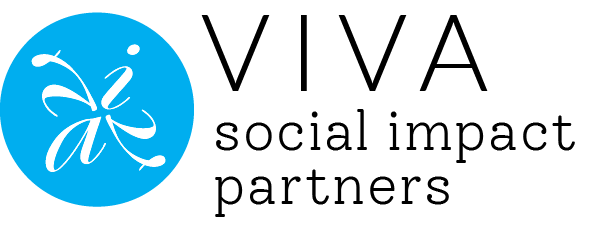2 min read
Boldly Leading for Social Good: 5 Things Good Leaders Have in Common
Laura Bowen
October 2, 2015
Blog

When Christina and I made the decision to focus the core of VIVA’s work on large-scale community impact projects, we knew that the work would never be boring. Facilitating multiple partners to address complex social issues, designing new systems and initiatives, bringing key stakeholders to the table to create a shared vision, and setting a course that is aspirational yet achievable requires brain power. For us, and for our clients, it can be the smoke-coming-out-of-your-ears kind of brainpower. But the belief that we can solve big audacious problems if we put our collective minds and energy together is what keeps me motivated to do this type of work.
The other key ingredient that I am reminded of on a weekly, if not a daily, basis that makes my work truly rewarding is the leadership of our clients and the community partners that work beside them.
Leading an organization is in and of itself no small feat. Leading an organization that is focused on addressing social challenges takes it up a notch. Leading alongside other community leaders and working with them to address communities’ complex issues and needs to change lives for the better takes it up more than a few notches. At VIVA, I am lucky to have the opportunity to see strong community leaders in action who are balancing each of these three demands.
All of the leaders we work with have qualities that you typically associate with strong leadership: they are articulate, confident, inspiring, and results-driven. But what it takes to lead in the complex world of non-profits, public agencies, and funders working to address big and complex issues like poverty, hunger, the educational achievement gap, homelessness, child abuse, or mental illness goes beyond what is typically covered in articles on leadership. It takes a unique kind of person and a unique skill set to be able to lead in this environment. The leaders that inspire me the most have five things in common:
- Social Conscience: These leaders are driven by a commitment to social good. At their core, they believe that they are here to make a difference in communities.
- Big Thinkers: They are systems thinkers. They think beyond the doors of their organization and they see how their work fits into a bigger web of systems, organizations and community initiatives that touch and impact lives. Because so much of their work crosses the boundaries of public and private systems, they need to have a broad understanding of how these systems work.
- Bold Advocates: They are not afraid to put forward new ideas, to question and to be vocal advocates for the work they are doing. They are tackling issues without easy solutions—and where the stakes are high for vulnerable people in their communities. These leaders know that the only way to see wide-scale funding and policy change happen is to be passionate advocates for it.
- Collaborators: The most inspiring leaders are out front and visible community leaders. They also know that they can’t go it alone in their own organizations and in their communities. They put tremendous trust in their internal teams to build content expertise and to be connectors and collaborators in the community. They also build strong relationships with other community leaders to chart the course to the future and to take collective action to get there.
- Tenacious: There are no easy solutions to our many pressing social issues, but these inspiring leaders don’t give up. Community change efforts can be messy, political, and complex, and it can take years to show results. These leaders test, reflect, acknowledge when things don’t work, and recalibrate along the way. They take their commitment to making their communities better seriously and are in it for the long haul.
Over the many years that I have spent working on community impact projects I have been fortunate to know a number of leaders who posses all five of these traits and abilities—they are the great leaders. For community change to happen, leadership like theirs needs to extend within and across organizations. I think we need to recognize the importance that great leadership has in achieving the changes we want to see in our communities and be intentional in mentoring and growing the next generation of community leaders so that they can boldly take the reins and lead us into the future.
Nicole Tanner, PhD, Co-Founder
